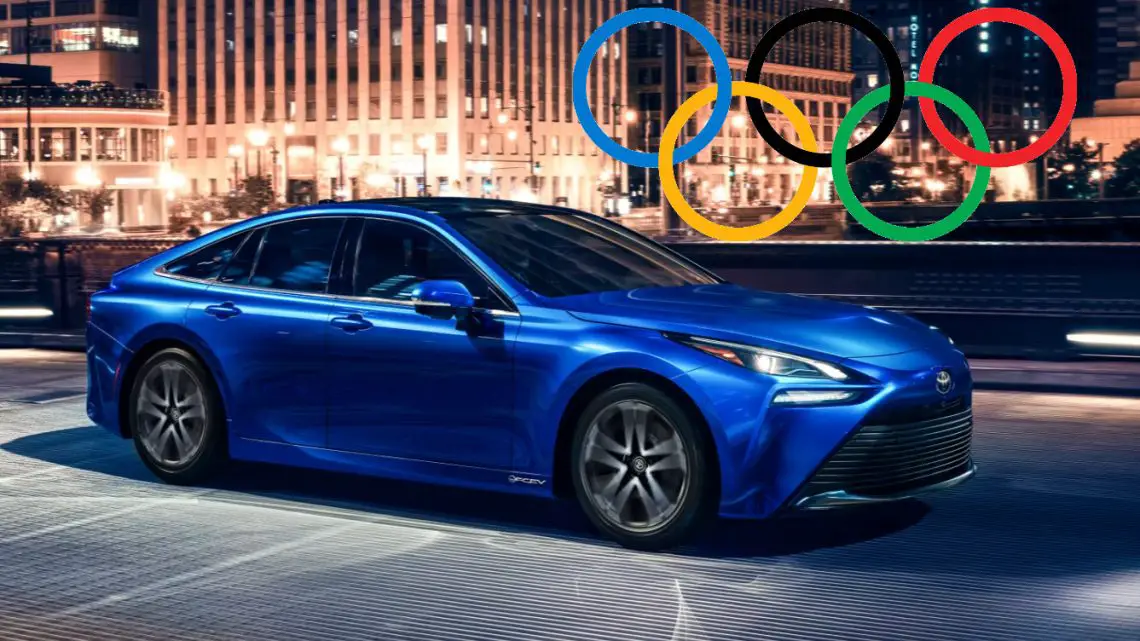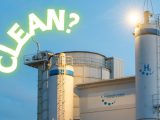
Scientists Urge Paris Olympics to Rethink Toyota’s Hydrogen Cars
July 13, 2024In a recent open letter, 120 scientists and academics have called on the organizers of the Paris 2024 Olympics to reconsider the use of Toyota’s Mirai hydrogen-powered vehicles as the official fleet. The plea is rooted in concerns about the environmental impact of hydrogen production, despite Toyota’s commitment to using green hydrogen derived from organic matter. The debate over the best eco-friendly alternatives for transportation has intensified as both hydrogen and electric vehicles (EVs) present unique challenges and benefits.
The Heart of the Argument
The scientists argue that while hydrogen cars like the Toyota Mirai emit zero carbon at the tailpipe, the reality is that 96% of global hydrogen production still relies on fossil fuels such as methane gas. This makes the environmental impact of most hydrogen-powered vehicles currently higher than that of battery electric vehicles (EVs), although the advantage of EVs is somewhat diminished by the fact that many electrical grids are still predominantly fueled by coal.
Despite these current drawbacks, advancements in hydrogen technology are underway to make it more scalable and environmentally friendly. Researchers are making significant strides in producing green hydrogen more efficiently and at lower costs. For instance, here are just 3 major breakthroughs this year:
-
Scientists at the University of Illinois, Chicago (UIC) have created a new process using biochar, an agricultural waste product, to produce hydrogen fuel with significantly less energy. This method utilizes water, solar power, and agricultural waste to reduce the energy required for hydrogen production by 600 percent. Published in Cell Reports Physical Science, this breakthrough could lead to more sustainable hydrogen fuels and a net-zero emissions future.
- Scientists at the RIKEN Center for Sustainable Resource Science (CSRS) in Japan have potentially revolutionized hydrogen fuel production by drastically reducing the need for iridium, a rare and expensive metal. By incorporating manganese, a far more abundant and affordable substance, they have managed to cut down iridium usage by up to 95%. This significant breakthrough can lower the costs of hydrogen fuel production while maintaining output efficiency.
- Lowering Costs of Green Hydrogen with Tertiary Water Treatment – Green hydrogen production needs very pure water, which is expensive. By using cheaper, reclaimed wastewater that’s purified through reverse osmosis (RO), costs can be significantly reduced. This advanced cleaning process ensures the water is pure enough for efficient hydrogen production, making it a cost-effective solution for clean energy. Learn More Here

The EV Alternative
Electric vehicles (EVs) offer zero emissions at the tailpipe, which is the same as a hydrogen car, and both provide immediate air quality benefits. However, the EV overall environmental impact is closely tied to the source of the electricity used for charging. In many regions, the electricity grid is still heavily reliant on fossil fuels. For example, in the United States in 2023, approximately 60% of electricity generation came from fossil fuels, with coal and natural gas being the main contributors.
The Dark Side of EVs
While EVs are promoted as the green future of transportation, they are not without their own environmental challenges:
- Production of EV Batteries: The manufacturing of EV batteries involves extensive mining of lithium and other rare earth materials, which has substantial environmental footprints.
- Lithium Mining’s Environmental Impact:
- Requires around 500,000 gallons of water per metric ton of lithium produced.
- Causes severe water shortages in regions like Chile’s Atacama Desert.
- Leads to water contamination from chemical runoff, affecting local ecosystems and communities.
- Recyclability Challenges of EV Batteries:
- As of 2023, only about 5% of lithium-ion batteries are recycled globally.
- Recycling processes are costly and energy-intensive, requiring high temperatures and complex procedures.
- Limited efficient recycling infrastructure exacerbates these challenges, contributing to hazardous waste accumulation and limiting the potential for a circular economy.
Toyota’s Multi-Path Strategy
Toyota has invested heavily in a diverse range of vehicle technologies, including hybrids, plug-in hybrids, and hydrogen-powered vehicles. For the Paris Olympics, Toyota is supplying a fleet that includes 500 Mirai hydrogen cars, 10 hydrogen coaches, and 1,150 EVs. The company asserts that the hydrogen used for the Mirai vehicles will be derived from water and organic matter, generated with renewable energy sources.
The Case for Hydrogen
Toyota argues that hydrogen-powered cars have a role in achieving a net-zero future. These vehicles can travel longer distances without refueling compared to EVs, and refueling is quicker, though EV rapid-charge technology is improving. The company is exploring up to 10 different uses for hydrogen in vehicles, including passenger cars, trucks, and buses.
Conclusion
The debate between hydrogen and electric vehicles is far from settled. Both technologies offer pathways to reducing carbon emissions, but each comes with its own set of challenges. The Paris 2024 Olympics’ decision to use a mix of hydrogen and electric vehicles reflects Toyota’s broader strategy to employ multiple technologies depending on energy availability, infrastructure, and customer needs.
The call from scientists and academics highlights the need for a more nuanced discussion on the environmental impact of our transportation choices. While green hydrogen holds promise for the future, the current reliance on fossil fuels for hydrogen production cannot be ignored. Similarly, the environmental footprint of EV batteries calls for advancements in sustainable mining and recycling practices.
Ultimately, achieving a sustainable future will require continued innovation and investment in clean energy technologies. As we move towards this goal, it is crucial to critically evaluate and improve the entire lifecycle of our transportation systems to ensure they genuinely benefit the planet.



 With over 15 years of reporting hydrogen news, we are your premier source for the latest updates and insights in hydrogen and renewable energy.
With over 15 years of reporting hydrogen news, we are your premier source for the latest updates and insights in hydrogen and renewable energy.
Entrepreneur’s are and have been forming companies to harness ‘white’ hydrogen. White hydrogen through drilling/ fracking will usher in the Hydrogen Era to replace Petroleum as the main source of power in the World.
If you google white hydrogen you will have an eye opening experience.
To clarify: hydrogen fuel cell cars are EVs:
BEV = battery electric vehicle
FCEV = fuel cell electric vehicle